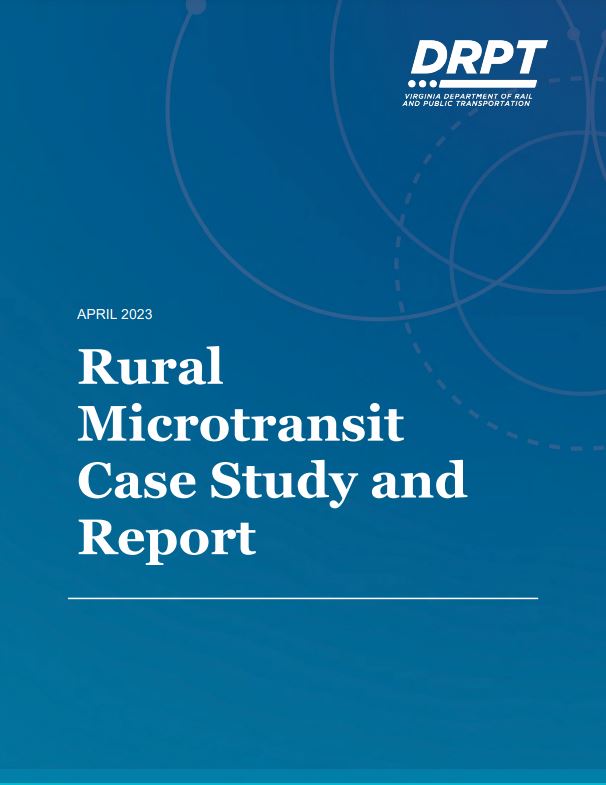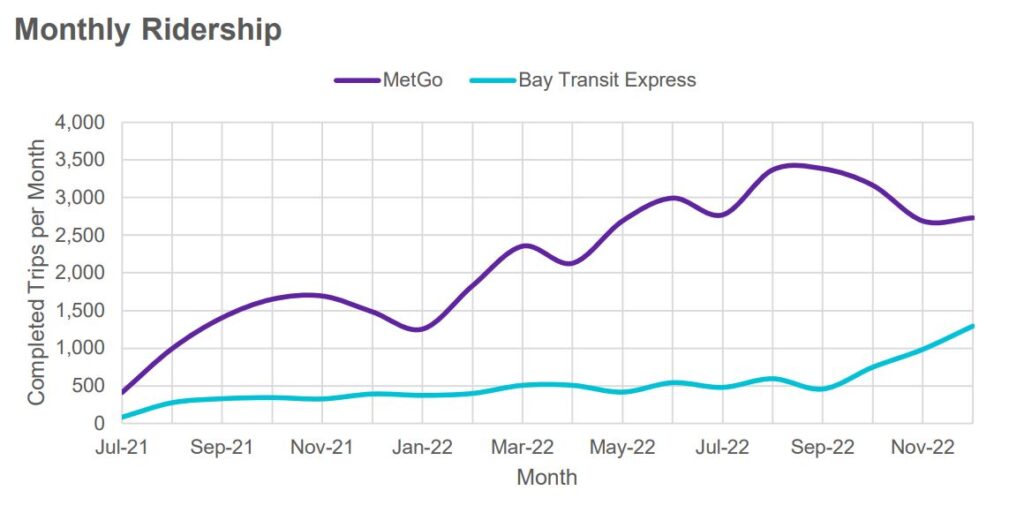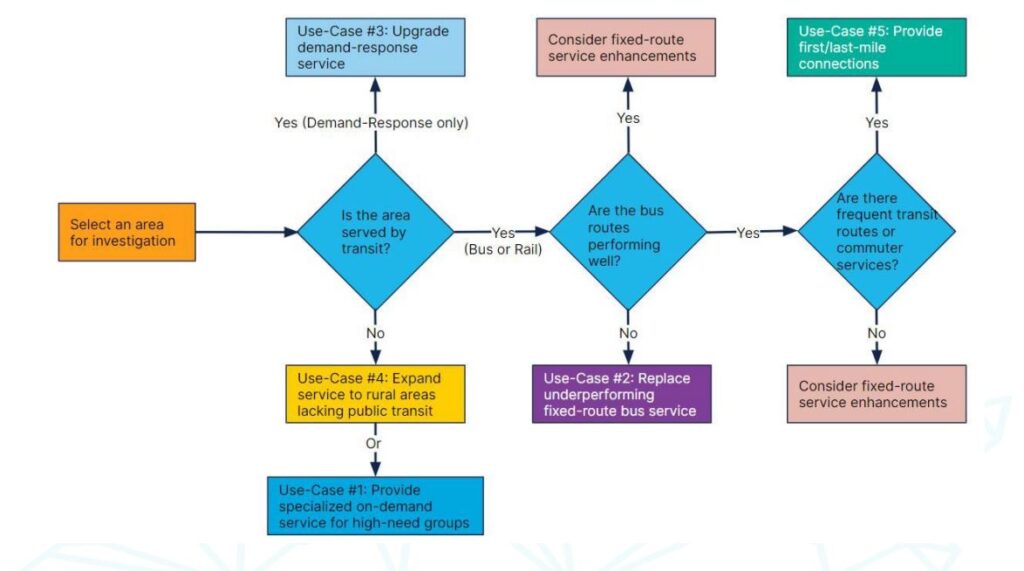Redefining Rural Transit: Findings from Virginia’s IMI Microtransit Demonstrations
By Shared-Use Mobility Center
Oct 11, 2023
Revised March 2025

In an effort led by the Virginia Department of Rail and Public Transportation (DRPT), two rural areas in the commonwealth of Virginia have seen microtransit services become available in their communities thanks to a Federal Transit Administration (FTA) Integrated Mobility Innovation (IMI) Demonstration Research Program Grant. DRPT, in partnership with rural transit providers Bay Transit and Mountain Empire Older Citizens (MEOC), launched Bay Transit and MetGo pilot programs, which leverage technology to offer real-time on-demand transportation services in the Tidewater region. After an 18-month demonstration, DRPT collaborated with RK&K Mobility and Via Mobility to conduct an evaluation study assessing the impacts and lessons learned of the rural microtransit deployment that would inform a solvency strategy and implementation toolkit for agencies looking to launch similar services.

The evaluation included interviews with various stakeholders, including but not limited to agency staff and program administrators from DRPT, transit managers of Bay Transit and MEOC, bus drivers and dispatchers who operate each service, and frequent riders of both services. Interview questions were tailored to each interviewee depending on their relationship to the services (i.e., if they were stakeholders, bus operators/dispatchers, or riders). These conversations provided an inside look into experiences before, during, and after the service launch and highlighted areas of success and improvement. The interviews highlighted strengths of the program, like ridership growth, user-friendly software, and newly formed stakeholder relationships, but also uncovered some challenges related to staffing and technology procurement, software configuration to rural settings, and delays in technical assistance.
Key takeaways emphasized the importance of conducting feasibility studies before launch, ensuring buy-in from local governments, drivers, and dispatchers, marketing the service locally through all communication channels, and educating riders and drivers on microtransit functionality and technology as switching to a software-as-a-service model may affect standard operating or booking procedures. Rider, driver, and dispatcher interviews expressed that both services filled a gap regarding safe, affordable, and reliable transportation, offered short wait times, and provided improved mobility to the community. Areas for improvement included a demand for longer operational hours and more vehicles and drivers to maintain service quality.

For more information and insights into the findings of these programs, you can access the full report here.
For a testimonial of a METGo! microtransit driver’s experience, watch the story of Rufus “Shanghai” Nickles here.